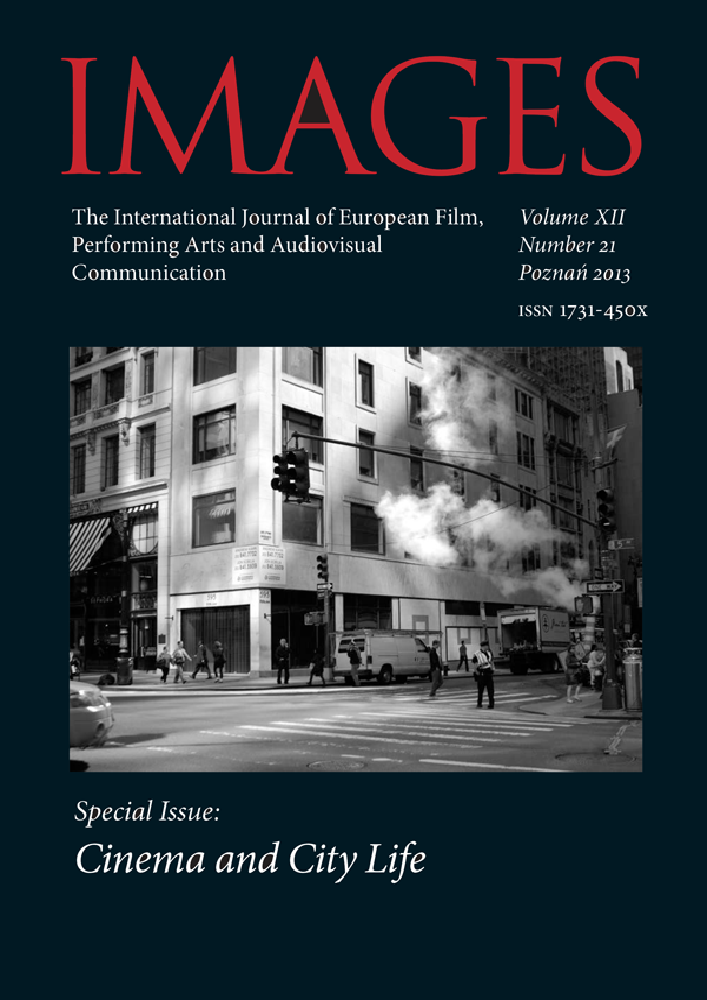Abstract
The city in Seven is full of dark and claustrophobic spaces, dominated by three colors: black, green and red. The significance of these colors is associated with sin: laziness (green), impurity (red) and pride (red, white). Desaturation of color and deep blacks throughout the film are the result of artistic treatments such as flyflashing and bleach-bypass. Color is complemented by light – sometimes minimal, other times quite blinding. The sound of thunder and rain complete the picture of the city as a place of moral decay, where two forces are fighting: light and darkness, purity and sin.References
Swallow, Dark Eye. The 2lms of David Fincher, Reynolds & Hearn, London 2003, s. 67.
M. Ząbkowska, Siedem, „Film & TV Kamera” 2003, nr 2, s. 15.
M. Rzepińska, Historia koloru w dziejach malarstwa europejskiego, Wydawnictwo „Arkady”, Warszawa 2003, s. 122
S. Marschall, Farbe im Kino, Schüren Verlag, Marburg 2002.
Cz. Miłosz, Saligia, w: idem, Ogród nauk, Instytut Literacki, Paryż 19812, s. 62–63 („Biblioteka Kultury”, t. 332).
D.E.Williams, The Sins of a Serial Killer, „American Cinematographer” 1995, nr 10, s. 40.
B. Brown, Światło w 2lmie, przeł. K. Kosińska, Wydawnictwo Wojciech Marzec, Warszawa 20112, s. 36–37.
B. Cierlica, Niestandardowe procesy obróbki chemicznej negatywu oraz pozytywu filmowego i ich porównanie z podobnymi efektami osiągalnymi drogą cyfrową, praca magisterska, promotor prof. S. Czyżewski, Państwowa Wyższa Szkoła Filmowa, Telewizyjna i Teatralna im. Leona Schillera, Łódź 2009, s. 10.
M. Browning, David Fincher. Films That Scar, Praeger, Santa Barbara 2010, s. 58.
K.J. Donnelly, „Saw” Heard. Musical, sound Design In Contemporary Cinema, w: Film Theory and Contemporary Hollywood Movies, red. W. Buckland, Routledge, New York–London 2009, s.112.
DVD , Siedem, reżyseria: D. Fincher, scenariusz: A.K.Walker, zdjęcia: D. Khondji, muzyka: H. Shore, produkcja: Cecchi Gori Pictures, New Line Cinema; USA 1995.
License
Copyright
© by Adam Mickiewicz University, Poznań, 2013
OPEN ACCESS
